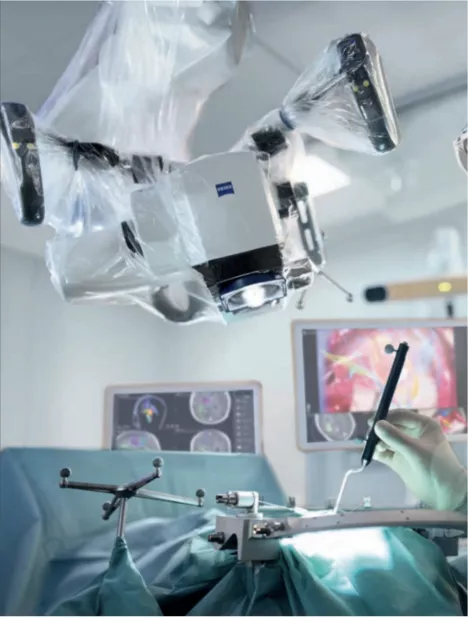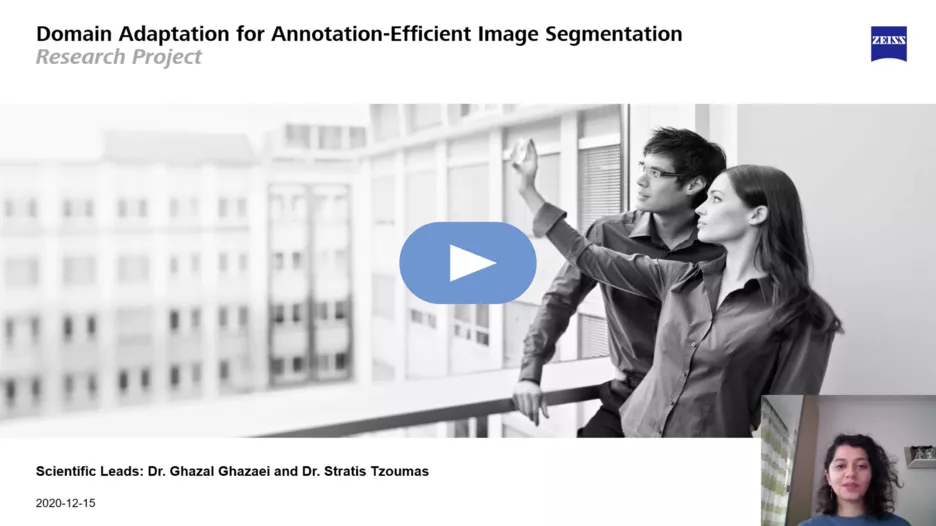Domain Adaptation for Annotation-Efficient Image Segmentation
This project took place in summer term 2021, you CAN NOT apply to this project anymore!
Results of this project are explained in detail in the final report.
- Sponsored by: Carl Zeiss AG
- Project Lead: Dr. Ricardo Acevedo Cabra
- Scientific Lead: Dr. Ghazal Ghazaei and Dr. Stratis Tzoumas
- TUM Co-Mentor: PhD Candidate Laure Vuaille
- Term: Summer semester 2021

Semantic image segmentation is one of the challenging and a constantly evolving problems in deep learning concerned with classification of each pixel of an image into an instance corresponding to a class. In general, this task can provide more in-depth understanding over a scene and global context of an image. In medical applications, as well, semantic segmentation is gaining exceedingly increasing attention thanks to easing the medical image analysis and scene understanding for image-guided interventions, radiotherapy, or improved radiological diagnostics, etc. [1].
However, extensive usage of these techniques in practice is effectively hindered by the lack of large amount of labeled data, especially when considering the huge amount of effort required for pixel-wise annotation of images. Not only the semantic image segmentation models require large datasets, but they require additional retraining, data collection and annotation steps for every new task and domain. Moreover, sufficient training data may not be available in some scenarios, while similar data is already available in another domain.
A possible approach to tackle these issues could be domain adaptation techniques in which a trained model can be adapted to work on new unseen domains. As such, the goal of this project is to realize a domain adaptation approach through which image segmentation models can generalize to new domains with no/minimal amount of annotations, e.g. by using un- and semi-supervised domain adaptation techniques [2-3].
Benefits
- Touching one of the most exciting research directions in deep learning – domain adaptation
- Gaining hands-on experience with deep learning, Tensorflow/PyTorch, and agile methodology
- Directly working with the corporate research department of ZEISS
Accepted students to this project should attend (unless they have proven knowledge) online workshops at the LRZ from 06.04.2021 - 09.04.2021 (9:00 AM to 5:00 PM). More information will be provided to students accepted to this project.
References
- Taghanaki, S.A., Abhishek, K., Cohen, J.P., Cohen-Adad, J. and Hamarneh, G., 2020. Deep semantic segmentation of natural and medical images: A review. Artificial Intelligence Review, pp.1-42.
- Toldo, M., Maracani, A., Michieli, U. and Zanuttigh, P., 2020. Unsupervised Domain Adaptation in Semantic Segmentation: a Review. arXiv preprint arXiv:2005.10876.
- Kalluri, T., Varma, G., Chandraker, M. and Jawahar, C.V., 2019. Universal semi-supervised semantic segmentation. In Proceedings of the IEEE International Conference on Computer Vision (pp. 5259-5270).
